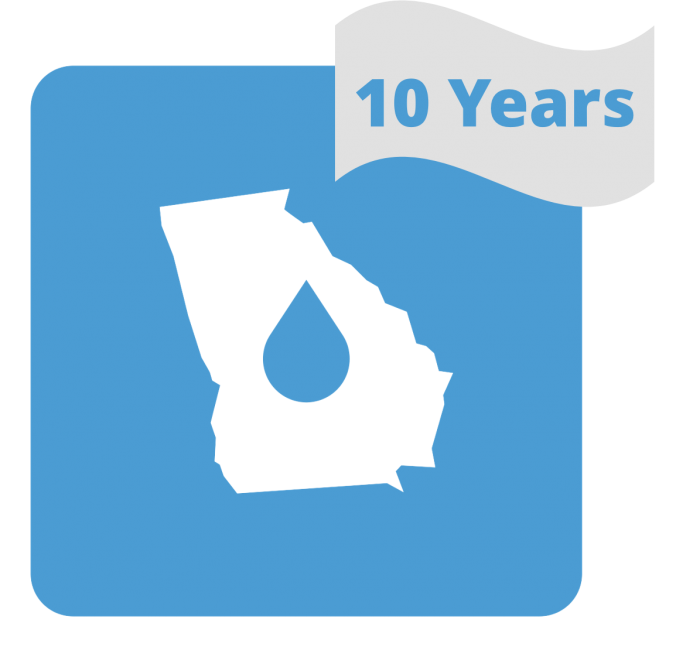Co-author Neil Sullivan is a Rates Specialist at the Environmental Finance Center.
Since 2007, the Environmental Finance Center at the University of North Carolina at Chapel Hill has been conducting water and wastewater rate surveys in Georgia. With support from the Georgia Environmental Finance Authority and other organizations[1], the EFC at UNC has collected a decade worth of rates data. Each year this data allows the us to create water and wastewater Rates Dashboards. This free tool helps utility staff analyze and weigh their current rates against different indicators to better inform future rate settings. Additionally, this data reveals important trends in how Georgia utilities manage their finances. Read on to see how the landscape of water and wastewater rates has transformed in the past decade:









